Chinese bullying ‘won’t be tolerated’, says DFAT head Frances Adamson
The country’s top diplomat has warned that Australia must stand up firmly to China or else risk ‘a very slippery slope’ for our democracy.
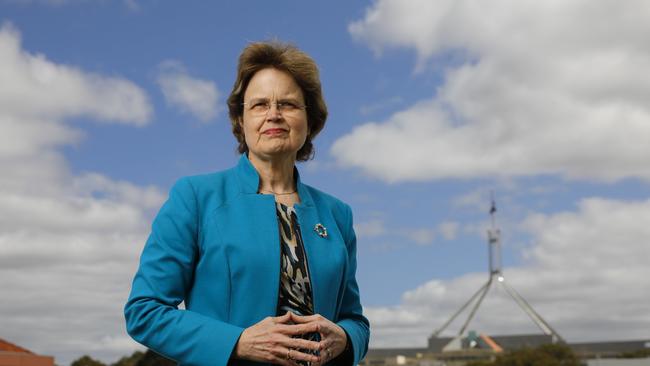
“It’s been very challenging, very demanding — I mean it’s an incredibly consequential time, there is no other way to describe it … it’s a time to roll your sleeves up and be in the game,” Adamson says. “And we very much are, I very much am.”
The usually media-shy 59-year-old DFAT secretary has agreed to this rare interview to let more Australians know that “there is a very real role for diplomacy” at a moment when “the world is becoming more contested” and a series of trends “are not running in our interests”.
Adamson’s words are not meant as a shot across the bow at government efficiency funding cuts that will force DFAT to shed 60 jobs, but rather are aimed at highlighting what is being done behind the scenes by her diplomatic and consulate team at an extraordinarily volatile and dangerous time in Australia’s history.
The onset of the pandemic early this year turned the lives of so many Australians upside down, none more than those trapped overseas, where the virus hit hard and hit early.
Adamson, DFAT’s first female secretary, has had to manage the response to the huge demand for assistance from Australians overseas while also ensuring the safety of her staff at the 112 Australian diplomatic missions abroad.
In the chaotic early days of the pandemic, her team had to account for 6500 Australians stranded on 51 coronavirus-hit cruise ships in often remote parts of the world, as well as numerous others.
Even now, six months later, Adamson says DFAT is still trying to manage the return of those many Australians who want to come home amid a restrictive quota system for returnees, patchy airline service and hardline quarantine rules.
“We are very involved,” she says. “There are over 25,000 Australians around the world at the moment who want to come home, (of which) we think about 3500 are in the vulnerable category.”
By vulnerable, she means anyone from pregnant women who need to come home while they can, to people without sufficient funds, to those with health problems or without insurance or facing family emergencies.
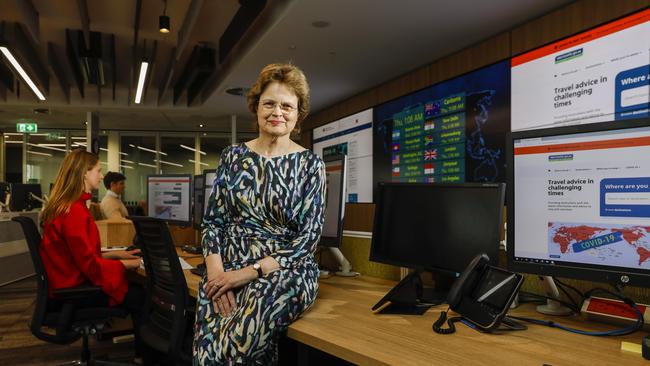
“We haven’t been able to help everyone yet, but we are continuing to do it to the best of our ability and it’s painstaking work,” she says.
But alongside the pandemic, Adamson has been on the frontline of arguably Australia’s most difficult diplomatic challenge in a generation; the growing confrontation with an assertive China.
China experience
Adamson’s views on this issue are worthy of close consideration for many reasons, not least because she is arguably the most experienced and highly qualified China watcher in Canberra.
A fluent Mandarin speaker, she was Australia’s ambassador in Beijing from 2011 to 2015, following earlier postings in the Australian consulate-general in Hong Kong and with the then Australian Commerce and Industry Office in Taiwan. Prior to becoming DFAT secretary in 2016, she was international adviser to then prime minister Malcolm Turnbull.
I asked her to explain to the average Australian what has changed with China in recent years. “That’s a really good question,” she says. “I first visited China in 1987, when it was a very different place, very much a developing country on a path of, as they called it, opening and reform, but literally with hundreds and hundreds of millions of people living in poverty.
“Over time, (thanks to) an enormous amount of hard work on the part of the Chinese people obviously hundreds and hundreds of millions of people have been lifted out of poverty.”
But in recent years, Adamson says, we have witnessed “not just great power competition between China and the US but a sharpening great-power rivalry as the balance of power shifts”.
She says that although China speaks often about its principle of non-interference in the affairs of other countries, “what we have seen, particularly in the past five years, is actions that don’t really match those words”.
“We’ve seen China seeking to assert itself in this region, in the Indo-Pacific and globally, in ways that suits its interests but don’t suit the interests of countries like Australia. We want a peaceful, stable, prosperous region … but when influence builds into interference, that is something we don’t want to see, our government won’t tolerate and I think most Australians are broadly supportive of that.”
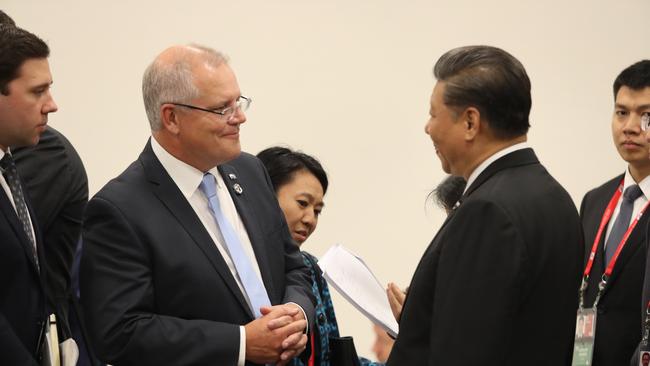
Adamson says the narrow escape of two Australian journalists expelled from China this week is an example of the “difficult issues” and “disappointing” developments arising between the two countries. However, she says it also highlights the vital role played by DFAT abroad in sheltering the journalists and then safely negotiating their departure from China.
The expulsion is the latest in a series of high-profile clashes with China over a swath of issues ranging from foreign interference laws to the banning of Huawei from the 5G network, the Morrison government’s call for an inquiry into the origins of COVID-19, a tougher stance against Chinese territorial claims in the South China Sea and an inquiry into foreign interference at Australian universities.
Adamson speaks with the caution of a diplomat about the state of the relationship with Australia’s largest trading partner, but the tough tenor of her message is clear.
When asked how Australia should deal with Beijing right now, she chooses to answer in a general way without mentioning China, but it is obvious which country her words are aimed at.
“Wherever the challenges come from, Australia should, Australia must, Australia is, standing up for its interests because if we don’t we are on a very slippery slope.
“The institutions we take for granted — our parliament, our democracy, our legal system, our freedom of speech and association — they really are at stake now. This is not a theoretical threat or concept and we need to make sure our institutions are strong and that we can defend ourselves. And this is where the role of diplomacy comes into play.”
Adamson is disappointed in the relatively new “wolf warrior” style of aggressive diplomacy adopted by China in Australia and elsewhere. “What it does is undermine the trust that is necessary if we are to manage differences,” she says. “Trust is quite important and I think shrill language, language that tests the bounds of truth, disinformation more broadly, is something we need to call out (because) if you accept it, it becomes the norm.”
She also rejects China’s allegations that Australia, the US and other countries are interfering in China’s affairs when they dispute Beijing’s claims to contested features and islands in the South China Sea. “The South China Sea is a body of water to which all countries in the world want to have access and, despite its name, it is not owned by any one state.
“There is a difference between us speaking publicly to uphold principles of international law and what I would call covert or coercive interference … in the affairs of another country.”
‘Don’t jump at shadows’
Despite there being a notably tougher response in Canberra, Washington and many other Western capitals towards Beijing’s behaviour, Adamson is reluctant to categorise herself as either a hawk or a dove on China.
“I don’t see it that way at all,” she says. “My response has had to adjust certainly, but I’ve always been clear-eyed about what’s really going on. You don’t jump at shadows, you don’t do things that you don’t need to do, but when there is a direct challenge, you need to take action to counter it.
“Part of what the Australian government is doing is building — building the resilience of our institutions, our critical infrastructure, our IT systems, (and the resilience) of our people actually.”
Adamson sees continued turbulence ahead in the US-China relationship at a time when US President Donald Trump and his opponent Joe Biden are both trying to outdo each other to be tougher on Beijing.
She says the harder attitude towards China in the US extends beyond both sides of politics and includes the business community and the leading think tanks where “the position has hardened and the tolerance for co-operation that advantages a now strategic competitor has more or less evaporated”.
“(But) the Chinese I think do have a good understanding of what’s going on in Washington,” she says. “They’ve long known that, in any democracy, elections are a time where there is lots of campaigning and positions are put quite sharply. My reading is that the Chinese will not be seeking to escalate any differences, in fact I think they are probably seeking to manage those quite carefully in the period through to the US election.”
On the topic of the looming US election, Adamson is of course careful not to express any preference for either Trump or Biden but she does admit that Australians, including herself, are “quite intensely interested in the whole process, mesmerised by it in some respects”.
But she says Australia has enduring interests regardless of who wins the election and these include a desire for a continued strong US presence militarily, economically and diplomatically in the Indo-Pacific region at a time of growing uncertainty.
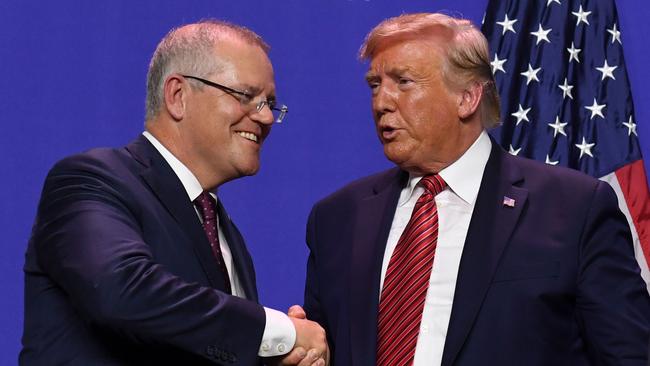
“Almost every election it is said as it rolls around, ‘it’s never mattered more’, but I think it’s actually true on this occasion,” she says. “We will work hand-in-hand, arm- in-arm, shoulder-to-shoulder with whichever administration is elected, whichever president is elected, because there is an enormous shared agenda.
“It’s not just about Australia and the US, it’s also about the region — the US presence in the Indo-Pacific has been a stabilising force over many decades.”
Rolling with punches
Adamson is proud of the way her department and her staff have reacted to the rolling series of crises that have been thrown at them this year. DFAT’s visibility in Canberra in recent years has been overshadowed by the much larger departments of Defence and Home Affairs. Some critics in Canberra believe the department needs to be more assertive in shaping the government’s global agenda but Adamson maintains that it punches above its weight. She says DFAT now has a key role to play in Australia’s economic recovery.
“The thing I want to be most focused on in the next 12 months is our contribution to Australia’s economic recovery … and our contribution will come through international trade opportunities, international investment creating jobs and also pushing back against protectionism that has naturally arisen across the globe due to COVID … DFAT is a part of the answer,” she says.
Adamson, who has juggled her high-profile career with raising four children around the world with her husband and former British diplomat Rob Bunten, first joined DFAT from her native Adelaide in 1985.
During that time she has had secondments to both sides of politics — to the office of former Labor foreign minister and then defence minister Stephen Smith and also Turnbull — but she has managed to avoid being linked to either side.
Her five-year term as secretary ends in July next year, but Adamson says she hasn’t thought about whether she might seek a second term. “I’m still concentrating on the first term at the moment,” she says dryly, given the turmoil 2020 has delivered so far.
“For a whole range of reasons there is an argument to be made to invest in diplomacy as we seek to work through COVID and get into economic recovery,” she says firmly. “We (DFAT) can make a difference and I always believe in making a difference.”
Cameron Stewart is also US contributor for Sky News Australia


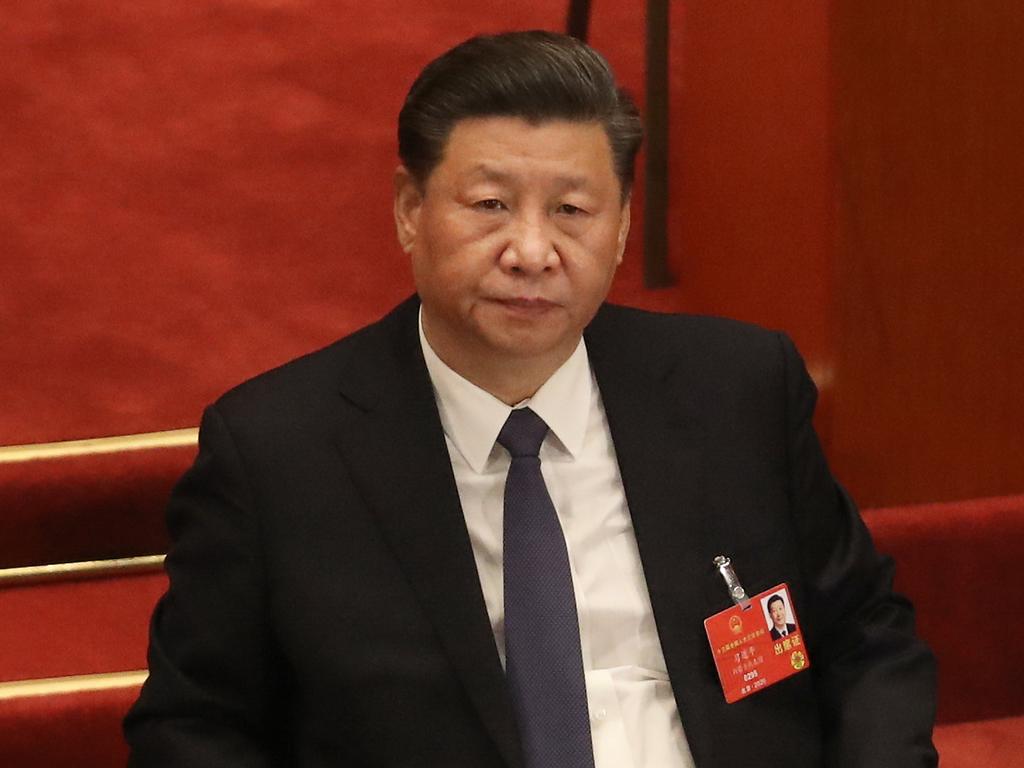
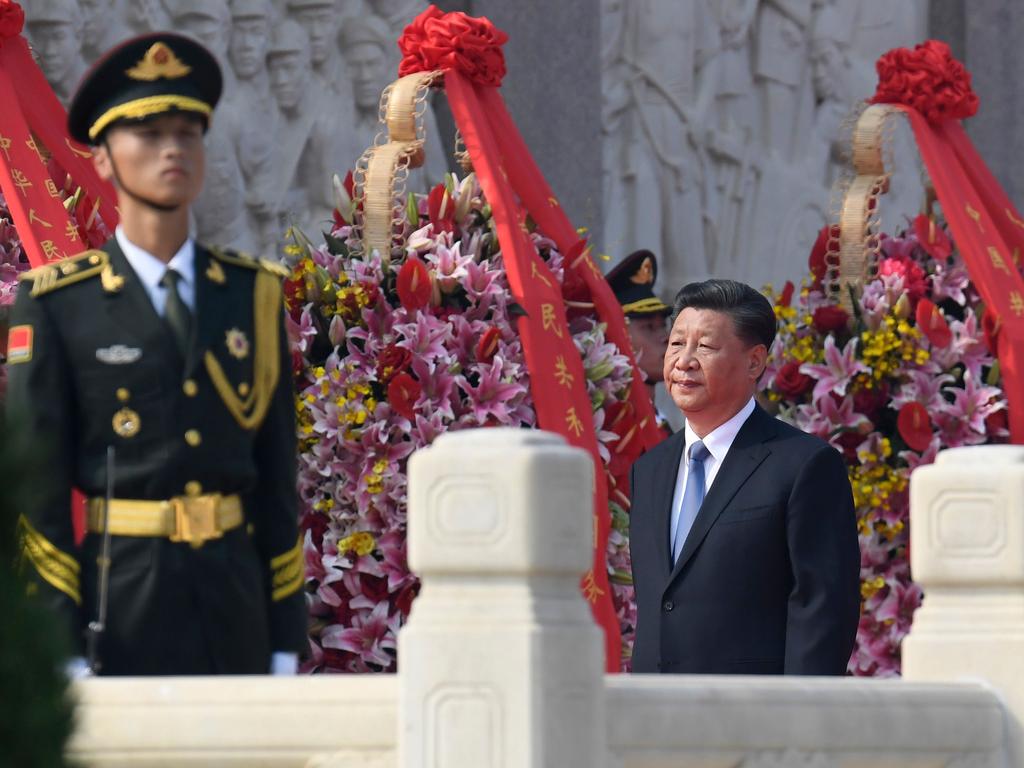


These are not easy days for Australia’s top diplomat, Frances Adamson. Adamson and her Department of Foreign Affairs and Trade are staring down the barrel of generational breakdown in Australia’s relationship with China. Throw in a global pandemic in which her department is trying to juggle more than 25,000 Australians overseas scrambling to come home, add for good measure a crushed economy both here and globally, and it’s hard to recall a time when the nation’s foreign service has been so tested.